Our Community
Ronnie defeats the deadly parvovirus
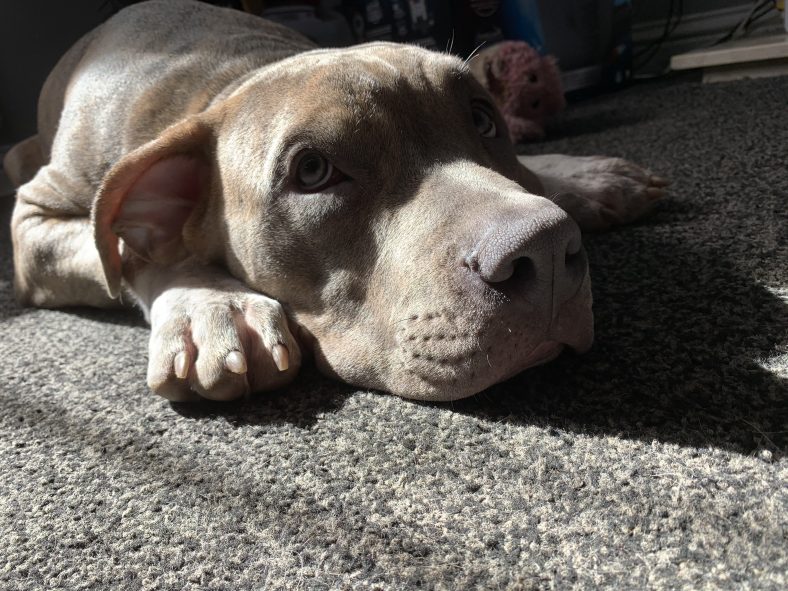
Ronnie is an adorable American Bulldog who came to The Ralph aged just 3 months old. He had been suffering from diarrhoea, which despite treatment was not getting better. He was lethargic, had a reduced appetite and his clinical signs were getting worse as time went by. Ronnie’s family advised he had been in contact with another puppy who had been diagnosed with canine parvovirus (parvo) just a few days ago. It was possible that Ronnie had been infected with this virus as well. Parvovirus is highly contagious and can be deadly so this was concerning news. The lab tests performed by Ronnie’s primary vet confirmed he did have parvovirus. With his clinical signs continuing to further deteriorate, Ronnie was referred to our Emergency + Critical Care Service.
When Ronnie arrived, he was lethargic, dehydrated, and tachycardic (an abnormally fast heart rate). When we examined his abdomen (belly), we found he was very uncomfortable, and the stomach and intestines were mildly swollen with gas and fluid.
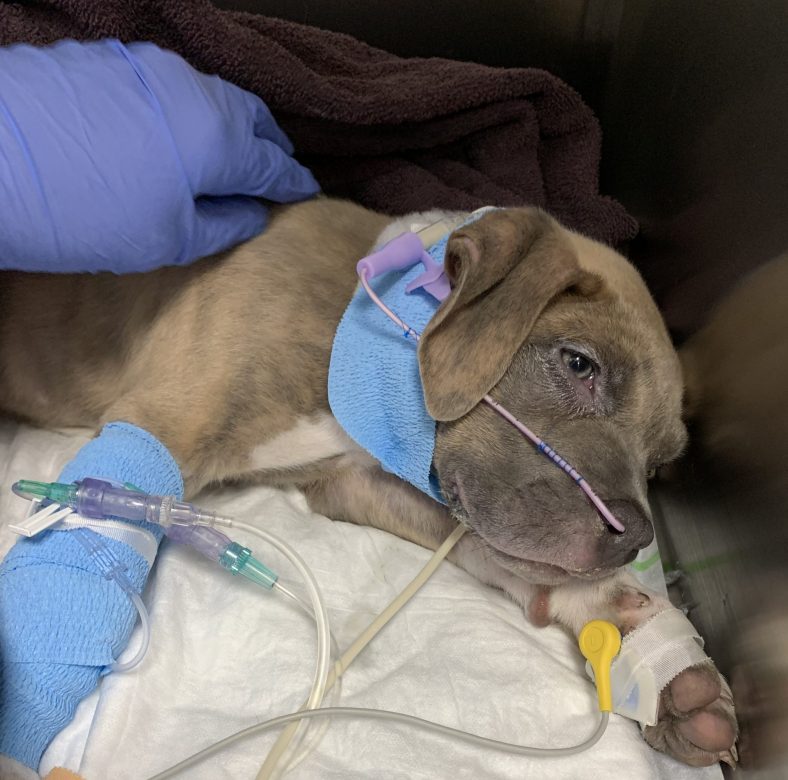
Ronnie during his stay at the hospital.
Since arriving at the hospital Ronnie continued to deteriorate and needed intensive supportive care. He was hospitalised in our Dog Intensive Care Isolation Unit to keep him safe, whilst protecting other patients from contracting the virus. To fully assess Ronnie’s treatment needs, our clinical team performed blood tests and took some images of Ronnie’s abdomen using ultrasound and X-ray machines. When providing Ronnie with hands-on care, our team wore personal protective equipment (PPE). This minimises the risk of the team spreading the virus to another dog.
Unfortunately there is no cure for parvo, so it is a case of managing the symptoms, providing constant nursing support, and round the clock monitoring. Ronnie’s supportive treatment included intravenous fluid therapy, anti-sickness medication, and prokinetics (which help the intestines to function properly).
Over the next few days, Ronnie’s symptoms became significantly worse and he became increasingly painful. He was continuing to vomit and had diarrhoea (with blood visible) on a more regular basis. After trying to keep Ronnie’s nutrition going via a feeding tube, a central line was placed and total parenteral nutrition was initiated (fluids with nutrients are given into a vein). Ronnie received several blood transfusions to boost his depleted numbers of blood cells. We believed Ronnie was a fighter, and were determined not to let the virus win.
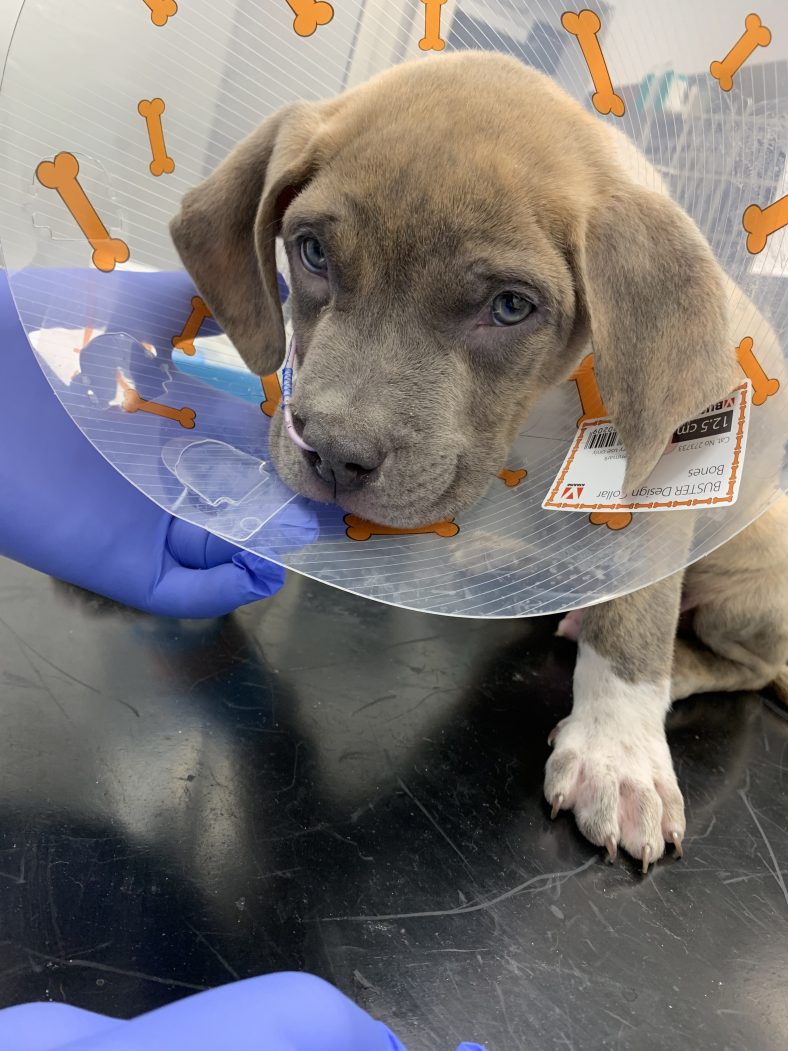
Ronnie getting ready to go home.
During the following two days, Ronnie slowly became more and more comfortable. The vomiting and diarrhoea gradually decreased with Ronnie able to eat by himself. He was doing so well that his pain medication was stopped altogether.
After a total of eight days stay, Ronnie was finally feeling well enough to go home with his family. A truly remarkable recovery, for such a strong little puppy.
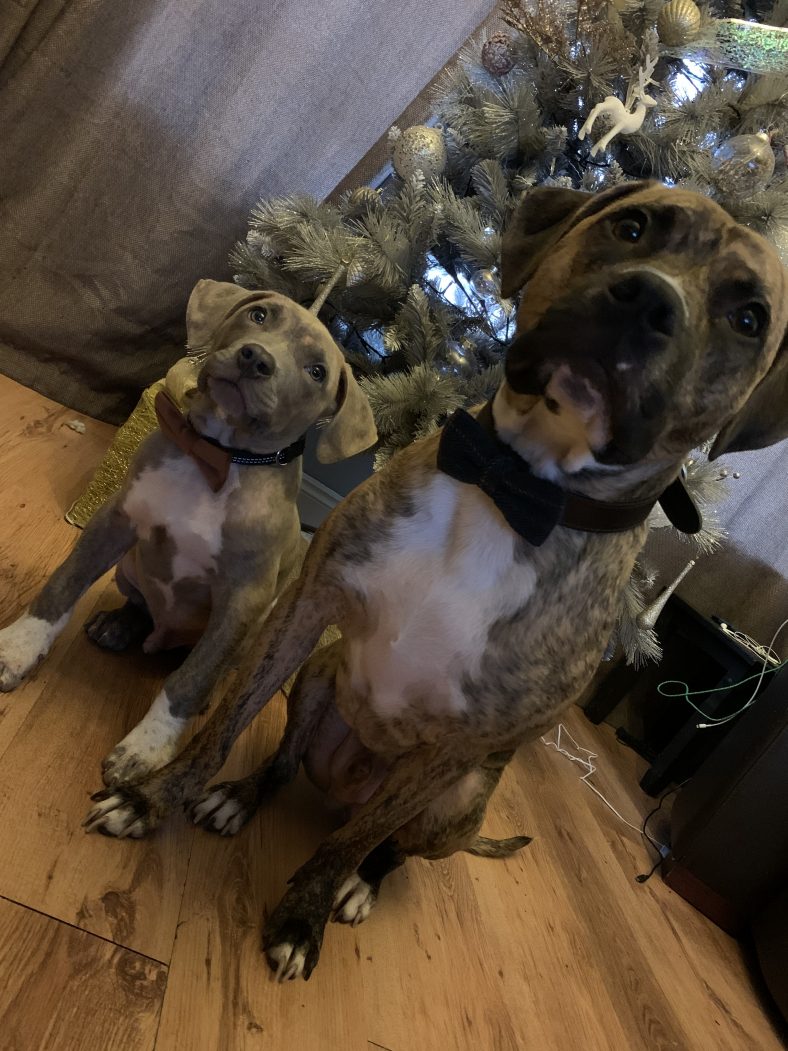
Ronnie and his big brother Reggie at Christmas.
Ronnie is now 6 months old and is enjoying life to the max with his big brother Reggie. His carers commented “We both say to this day if it wasn’t for The Ralph we don’t think he would have survived. It was so hard and upsetting to see him in the state he was but thanks to everyone who works there we now have a happy healthy pup who now gets away with everything! Ronnie has grown into the most handsome boy, and all our family and friends have fallen in love with him. He is the soppiest laziest dog on earth, and we have The Ralph to thank for that.”
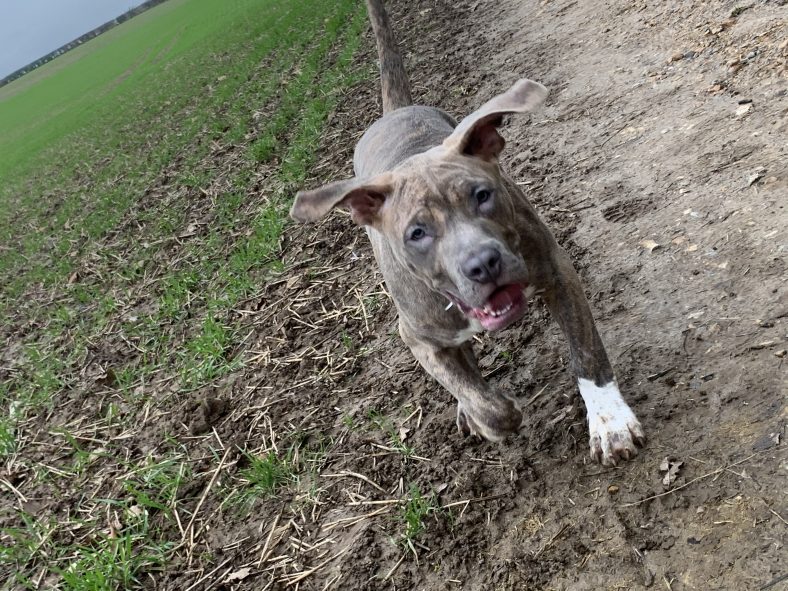
Ronnie having fun during a walk this winter.
About Parvovirus
Canine parvovirus (parvo) is a highly infectious disease. It is caused by a virus which attacks the cells in the intestines, stopping them from absorbing vital nutrients, and also causes a decrease in white blood cells. Symptoms of parvo include diarrhoea, vomiting, loss of appetite, collapse, depression, and fever. The diarrhoea is typically bloody. Sadly, parvo is often fatal without intensive treatment.
As you can see in Ronnie’s story though, not all cases are fatal. Whilst there is no cure for the disease, treatment involves intensive supportive therapy and round the clock monitoring and care.
Parvo spreads quickly around puppies and dogs who are not vaccinated. It is therefore incredibly important that dogs are vaccinated. Vaccination for parvovirus is routine and forms part of the usual vaccination for dogs aged from 6-8 weeks old. Your primary care vet will be able to provide advice on vaccinations, and boosters, to help keep your dog protected.
Thank you for taking the time to read Ronnie’s story. Stay tuned for more stories from inside the hospital.
Keep safe and take care,
Team Ralph
